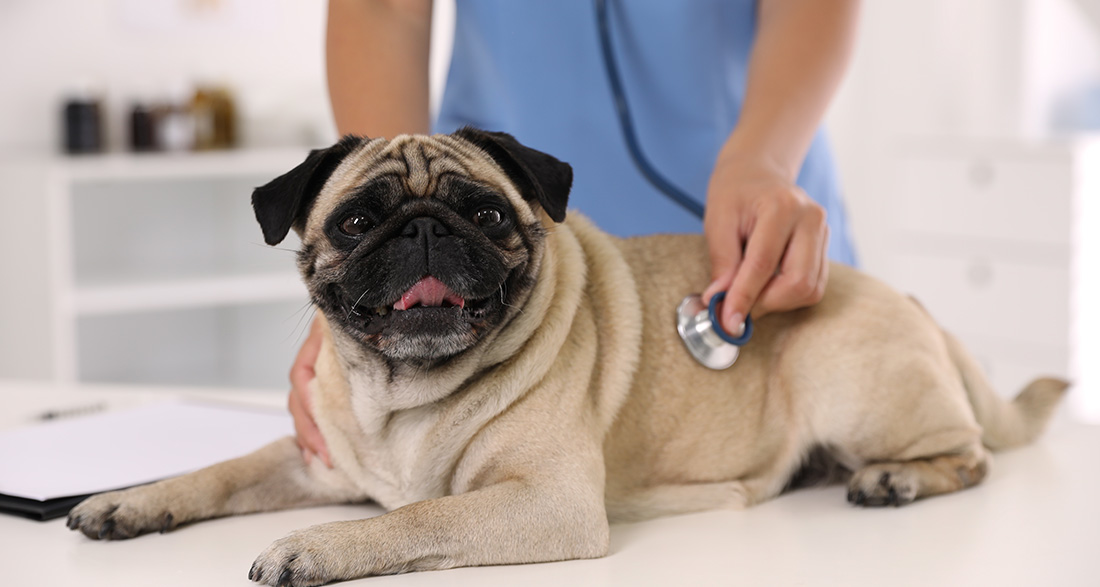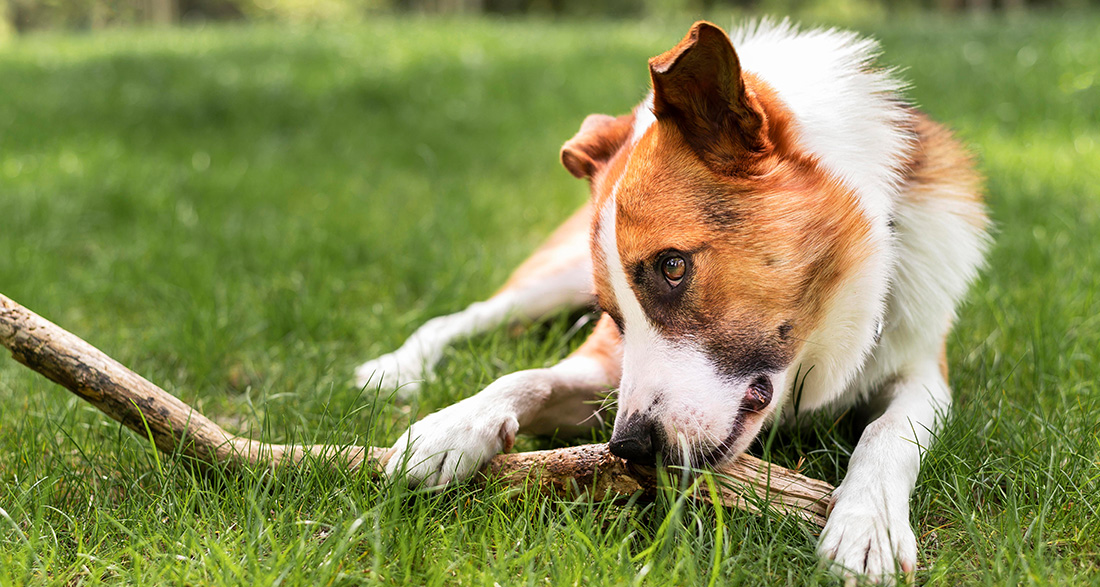How can my dog get infected with roundworms, how can I recognize the parasites, and what does the treatment involve? Learn everything about worms in dogs.
- Roundworms in Dogs: Infection, Symptoms, and Treatment
- What are Roundworms in Dogs?
- How can my dog get infected with roundworms?
- Symptoms: Recognizing Roundworms
- Diagnosis and Treatment of Roundworms in Dogs
- What does the treatment for roundworms in dogs look like?
- How to Prevent Roundworms in Dogs
- Can roundworms be transmitted to humans?
Roundworms in Dogs: Infection, Symptoms, and Treatment
Worms, along with fleas, ticks, and mites, are among the most common parasites. About 1/10 of all puppies and young dogs carry the roundworm, which makes up the majority of its category. If your furry friend’s belly is rumbling, digestive issues persist, and especially if your young puppy seems unwell, a roundworm may be causing trouble.
What are Roundworms in Dogs?
The roundworm (Toxocara canis, rarely Toxascaris leonina) is a nematode, a type of endothermic parasite, unlike ectothermic parasites like ticks, fleas, and mites. It infests internal areas of the body, mainly the intestines. With a length of up to 20 cm, these worms transmit through their highly resilient eggs, which can be found in a considerable part of numerous parks. The worm females lay about 200,000 eggs each day, from which larvae later hatch.
How can my dog get infected with roundworms?
Any four-legged friend who loves to roam through forests and fields is at risk of getting infected with roundworms. Since extensive walks are a must and the favorite hobby of many dogs, the rule here is prevention is better than cure. Infection occurs through your dog’s mouth as it sniffs, licks, or eats something contaminated. Risk sources include feces, animal carcasses, carrion, and even soils.

Once your furry friend has ingested the eggs, larvae develop in the intestine. What’s unique here is that the parasite doesn’t necessarily stay in the intestines. By migrating through your dog’s blood vessels, they can also reach body parts like the lungs and muscles. Sounds gross? It is – especially for your furry friend. Often, a portion of the larvae encapsulates in organs and can be activated even after years. This is especially common in pregnant females, as their puppies usually become infected, causing young dogs to suffer from worm infestations.
Does your dog enjoy eating from the ground and vacuuming everything in when you’re not looking? Such behavior not only increases the risk of worm infestation but also encountering a poison bait. With appropriate training, you can teach your dog to eat, for example, only on command or only from your hand when you’re out and about. Give it a try right away – our tasty Pets Deli snacks are there to assist you. Guaranteed free from sugar, grains, and artificial flavorings!
Symptoms: Recognizing Roundworms
Dogs do not always show symptoms when infected with roundworms. Especially in adult dogs, the roundworm is more of an incidental finding than an actively sought infection. In puppies and young dogs, however, infestations usually come with symptoms such as:
Especially if your dog vomits a lot or coughs, you may notice white threads in the expectorate, resembling spaghetti. This is a clear indication of a roundworm infestation, and it means for you and your furry friend: Off to the vet clinic, and quickly!

Diagnosis and Treatment of Roundworms in Dogs
In addition to distressing digestive issues, roundworms can lead to increased susceptibility to infections and even weaken the effectiveness of vaccination. This affects the entire immune system, making a prompt diagnosis and treatment crucial if your dog has been infected with parasites.
The veterinarian examines collected feces samples from your dog. Samples from three days are necessary to reliably determine if worms are present. If your dog coughs or vomits, a sample is also helpful, which is examined more closely under the microscope.

What does the treatment for roundworms in dogs look like?
Once the diagnosis is established, a deworming agent is administered to your dog. Typically, these are (chewable) tablets, occasionally also creams or pastes, administered orally. Generally, this treatment works well, but in cases of severe infestation, additional preparations, infusions, and injections may be required. You see: As eerie as the “spaghetti worm” may be, veterinarians can quickly eliminate the parasite.
Most dogs are not fans of swallowing those small pills readily. Some persuasion is needed – how convenient that our iHugDogs liver pâté is a highly esteemed assistant when it comes to getting your furry friend to take medication.
How to Prevent Roundworms in Dogs
The key to preventing roundworms in dogs is regular deworming. Parasites cannot be entirely avoided, but deworming ensures the early destruction of any worms in your dog. The remedies are usually free from side effects and very well-tolerated by your dog.
Many owners refrain from regularly giving “deworming treatments” and regularly have their beloved pets’ feces examined for worms. This way, any infestation can be quickly addressed, and medication is only administered when an infestation is confirmed.
Can roundworms be transmitted to humans?
Yes – that’s why it’s crucial to maintain impeccable hygiene and thorough handwashing in case of your dog’s infestation. Sleeping and feeding areas should be frequently cleaned with hot water until the infestation is eradicated. Public sandboxes pose a risk for children. An infection rarely shows symptoms, but immunocompromised individuals may develop symptoms ranging from headaches and allergies to eye and liver damage. Regular deworming is recommended even when individuals with relevant pre-existing conditions live in the household.


